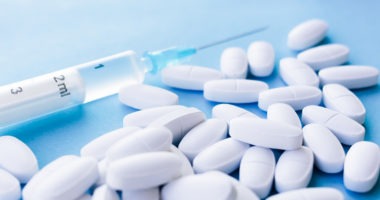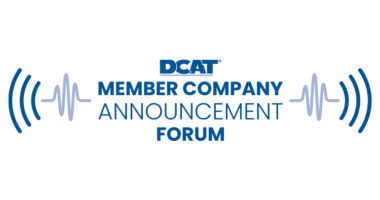Bristol-Myers Squibb $74-Billion Buy of Celgene: Products, Pipelines, and Manufacturing
Bristol-Myers Squibb’s pending $74-billion acquisition of Celgene would create a top 10 pharmaceutical company with combined revenues of more than $33 billion. At the JP Morgan Healthcare Conference being held in San Francisco this week, Bristol-Myers Squibb Chairman and CEO Giovanni Caforio provided strategic insight for the move.
Inside the proposed deal
The agreement by Bristol-Myers Squibb and Celgene under which Bristol-Myers Squibb will acquire Celgene in a cash and stock transaction with an equity value of approximately $74 billion would move the combined company among the top 10 companies in terms of product sales. The combined company will have nine products with more than $1 billion in annual sales in core disease areas of oncology, immunology and inflammation, and cardiovascular disease with key drugs being Bristol-Myers Squibb’s immuno-oncology drug, Opdivo (nivolumab), and the anticoagulant, Eliquis (apixaban), each with 2017 sales of $4.9 billion and Celgene’s multiple myeloma drug, Revlimid (lenalidomide), with 2017 sales of $8.2 billion. Overall, in 2017, Bristol-Myers Squibb, posted 2017 revenues of $20.8 billion and Celgene 2017 revenues of $13.0 billion. The Boards of Directors of both companies have approved the combination. The transaction is subject to approval by Bristol-Myers Squibb and Celgene shareholders and the satisfaction of customary closing conditions and regulatory approvals. Bristol-Myers Squibb and Celgene expect to complete the transaction in the third quarter of 2019.
The combined company would also have near-term launch opportunities representing more than $15 billion in revenue potential according to the companies. The combined company will have six expected near-term product launches: two in immunology and inflammation, TYK2 and ozanimod, and four in hematology, luspatercept, liso-cel (JCAR017), bb2121, and fedratinib. The combined company’s early-stage pipeline includes 50 high-potential assets, according to the companies. It also would have combined discovery capabilities in a broad range of modalities in small-molecule design, biologics/synthetic biologics, protein homeostasis, antibody engineering, and cell therapy.
Key products and pipeline assets of combined company
The combined company will be lead by current Bristol-Myers Squibb Chairman and CEO Giovanni Caforio, who spoke at this week’s JP Morgan Healthcare Conference in San Francisco, emphasizing the basis of the deal evolved around “science, innovation, and pipelines.” For commercial products, the key product franchise is oncology. Key products of the combined company are Bristol-Myers Squibb’s immuno-oncology drug Opdivo (nivolumab) with 2017 sales of $4.9 billion and the checkpoint inhibitor, Yervoy (ipilimumab) with 2017 sales of $1.244 billion and Celgene’s multiple myeloma drug, Revlimid (lenalidomide), with 2017 sales of $8.2 billion and the checkpoint inhibitor, Pomalyast (pomalidomide), with 2017 sales of $1.6 billion. Other key product franchises are inflammatory and immunology with Bristol-Myers Squibb’s Orcenia (abatacept), a drug used to treat autoimmune diseases, including rheumatoid arthritis with 2017 sales of approximately $2.5 billion and Celgene’s Otezla (apremilast) for treating certain types of psoriasis and psoriatic arthritis with 2017 sales of $1.3 billion and cardiovascular lead by Bristol-Myers Squibb’s anticoagulant, Eliquis (apixaban), with 2017 sales of $4.9 billion.
On a pipeline basis, the combined company has 10 late-stage (Phase III assets) with six products expected to be launched in the next 24 months and more than 20 products in immuno-oncology for lifecycle management. For early-stage (Phase I and Phase II), key therapeutic areas are: oncology for solid tumors and immuno-oncology with 21 products: 10 oncology hematology products; 10 drug candidates in immunology and inflammation; and nine products in cardiovascular and fibrosis.
The acquisition also positions Bristol-Myers Squibb in cell therapies. In 2018, Celgene acquired Juno Therapeutics for approximately $9 billion, a company that is developing chimeric antigen receptor T cell (CAR T) therapies and T cell receptor (TCR) therapeutics for multiple targets and cancer indications. A key addition to Celgene’s lymphoma program is Juno’s JCAR017 (lisocabtagene maraleucel; liso-cel), a CD19-directed CAR T therapy for treating relapsed and/or refractory diffuse large B-cell lymphoma. At the time of the announced acquisition in January 2018, Celgene said it expects regulatory approval for JCAR017 in the US in 2019 with potential global peak sales of approximately $3 billion. Another key asset from Juno is CARH125, which Celgene says will enhance its campaign against BCMA (B-cell maturation antigen), a key target in multiple myeloma. Celgene also gained additional cellular therapy assets in proof-of-concept trials for hematologic malignancies and solid tumors.
The acquisition of Juno provided Celgene a scientific platform that complements Celgene’s position in hematology and oncology as well as scalable manufacturing capabilities. In collaboration with Juno’s team in Seattle, Washington, Celgene said with the acquisition of Juno, it plans to expand its existing center of excellence for immuno-oncology translational medicine by using Juno’s research and development facility in Seattle as well as Juno’s manufacturing facility in Bothell, Washington.
Manufacturing of the combined company
In terms of manufacturing, key capabilities of the combined company include large-scale and development capacity for biologics, led by Bristol-Myers Squibb’s biomanufacturing facility in Devens, Massachusetts and plans for another large-scale biomanufacturing facility in Ireland. Bristol-Myers Squibb plans to open a new EUR 900 million ($1.02 billion) large-scale biologics manufacturing facility in Cruiserath, County Dublin, near Blanchardstown that will produce multiple therapies for the company’s growing immuno-oncology portfolio. The manufacturing facility is estimated to be operational in 2019.
The new facility follows a recent large-scale biomanufacturing investment by the company at its biomanufacturing facility in Devens, Massachusetts. In 2016, Bristol-Myers Squibb completed a major expansion at its Devens facility. The $280-million project added two new buildings to the 89-acre Devens campus: a biologics development building for designing processes for the early production of investigational medicines and a clinical manufacturing building for investigational medicines to support clinical trials. Both are new capabilities for Devens, a site that had previously focused solely on large-scale, bulk biologics manufacturing. The two new buildings also added approximately 200,000 square feet to a site now previously comprised of eight major buildings in a 600,000-square-foot complex. When combined with the company’s initial $750-million investment to build the facility, the expansion project brings the company’s total investment at the Devens site to more than $1 billion.
Celgene also brings specialized manufacturing capabilities for cell therapies. In February 2018, Celgene completed the first phase a new immunotherapy manufacturing center CAR-T therapies at its Summit West campus in New Jersey. Celgene expects to expand investigational programs and launch bb2121, its CAR-T therapy being developed for certain multiple myeloma patients in conjunction with its partner, bluebird bio, a Cambridge, Massachusetts-based clinical-stage gene therapy company. With CAR-T technology, immune cells are removed from a patient, genetically modified and multiplied, and placed back into a patient to create an individualized therapy. Celgene had been manufacturing bb2121 in its facility in Warren, New Jersey for clinical trials.
Celgene is involved in cellular therapy development through its Celgene Cellular Therapeutics business that focuses on placenta-derived and other stem-cell therapies in multiple diseases and cell therapies through its acquisition of Juno Therapeutics.





